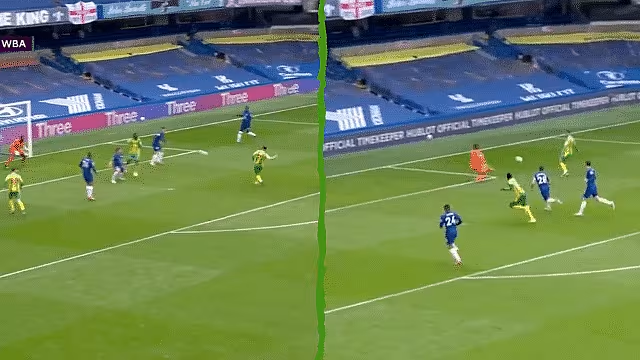We don’t know exactly when it happened, but some time over the past 10 years the phrase “expected goals” (or “xG”) became a staple of the football dictionary. To this day, we’re not quite sure what it means.
What we’ve gathered over the past few years is that expected goals stats combine all of the other stats you’ll see – like possession, shots, shots on target, the whole works – and combines that with more ambiguous “stats” like chances created and movement, to try and predict how many goals each team should score in a game.
As you might expect, it doesn’t always work out that way. One of the brilliant things about a low-scoring game like football is that fluke results can happen and, sometimes, wins can be snatched against the run of play, something that expected goals doesn’t account for.
Our new favourite Twitter account – @xGphilosophy – follows the results of all of the big games and compares them to the xG for both teams. Though the xG does generally line up, there have been some brilliant examples over the past few weeks of when the “xG Philosophy” doesn’t quite go to plan. One of them is particularly painful…
PSG (1.09) 0-1 (0.20) Lille
— The xG Philosophy 🇪🇺 (@xGPhilosophyEU) April 3, 2021
Chelsea (2.60) 2-5 (1.47) West Brom
— The xG Philosophy (@xGPhilosophy) April 3, 2021
Ireland (1.68) 0-1 (0.31) Luxembourg
— The xG Philosophy (@xGPhilosophy) March 27, 2021
https://t.co/f22VpTzHea pic.twitter.com/e3RFrn9E8h
— The xG Philosophy (@xGPhilosophy) March 27, 2021
Juventus (2.59) 0-1 (0.32) Benevento
— The xG Philosophy 🇪🇺 (@xGPhilosophyEU) March 21, 2021
Arsenal (2.58) 0-1 (0.71) Olympiakos
— The xG Philosophy (@xGPhilosophy) March 18, 2021
Brighton fans will be well aware of xG, as their team have repeatedly struggled to live up to expectations in the Premier League this year.
West Brom (1.13) 1-0 (3.14) Brighton
— The xG Philosophy (@xGPhilosophy) February 27, 2021
Brighton (2.06) 1-2 (0.24) C Palace
— The xG Philosophy (@xGPhilosophy) February 22, 2021
Brighton (2.59) 0-0 (0.13) Aston Villa
— The xG Philosophy (@xGPhilosophy) February 13, 2021
At half-time of England’s game with Poland on Wednesday, however, we were treated to one rare example of xG landing perfectly, and it was oddly satisfying (though it would have been better if Poland had been in front).
HT: England (1.00) 1-0 (0.00) Poland
— The xG Philosophy (@xGPhilosophy) March 31, 2021
Though we’re sure there’s some sort of use for xG somewhere, it does seem like an unreliable statistic to judge a match by.
We’d just love to know what the xG looked like for Celtic’s win over Barcelona in 2012 - it would surely have made for ugly reading for Barca.












